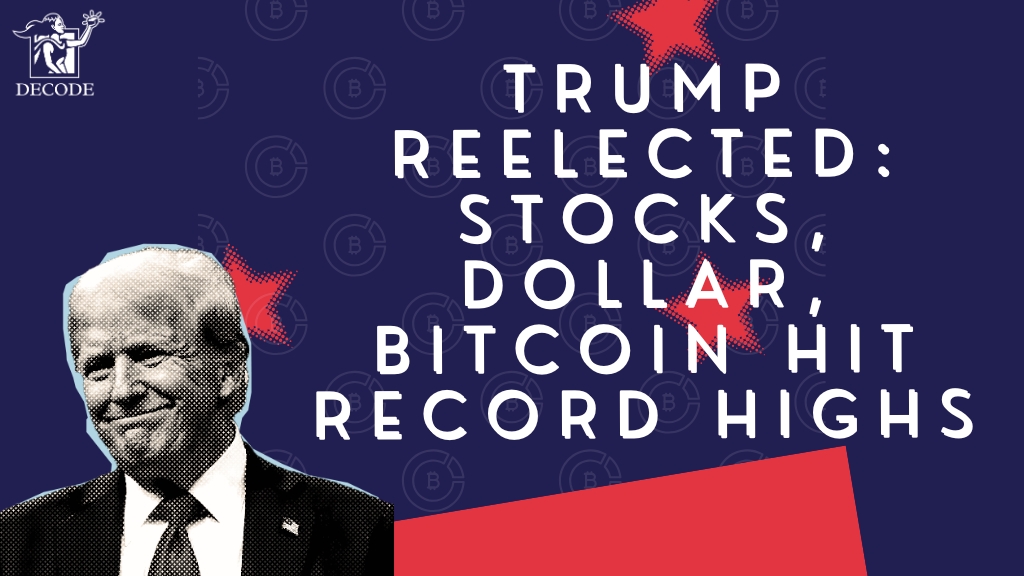
Trump Re-elected: Stocks, Dollar, Bitcoin Hit Record Highs
US stocks surged to record highs on Wednesday following Donald Trump’s re-election to the White House, marking a historic win that sparked a rally across major indexes and a spike in the dollar. The Dow Jones Industrial Average surged 1,508.05 points, or 3.57%, closing at a record 43,729.93, while the S&P 500 and Nasdaq Composite also achieved all-time highs, climbing 2.53% and 2.95% respectively. The Russell 2000 index, a benchmark for smaller, domestic-focused companies, jumped 5.84% to a 52-week high.
The dollar saw its largest increase in eight years as investors grew optimistic that Trump’s proposed tax cuts and tariffs would strengthen the currency. Trump’s expected economic policies, which emphasize reducing corporate taxes and supporting domestic industries, are projected to benefit U.S. companies, particularly in the financial and industrial sectors. This led to significant gains for stocks such as Tesla, which jumped over 14%, while major banks like JPMorgan Chase and Wells Fargo rose by 11.5% and 13%, respectively.
Bitcoin also soared to an all-time high, surpassing $76,000 as investors anticipated that Trump’s administration would adopt a more lenient regulatory stance on cryptocurrency, given his campaign’s expressed support for crypto markets. The promise to prioritize Bitcoin has drawn interest to the digital currency, adding to its historic rally.
Meanwhile, investors are expecting that Trump’s plans to cut taxes and impose higher tariffs could push up inflation and lessen the need for continued interest rate cuts. This outlook has contributed to rising Treasury yields, with the 10-year yield climbing to around 4.43% as markets prepared for inflation and potential fiscal expansion.
In Congress, projections indicate that Republicans are poised to reclaim the Senate, with the House results still uncertain, opening the possibility of a Republican-dominated Congress. Such a “red sweep” could lead to a substantial shift in economic policy, with potential tax reforms and spending cuts that would further influence market dynamics.